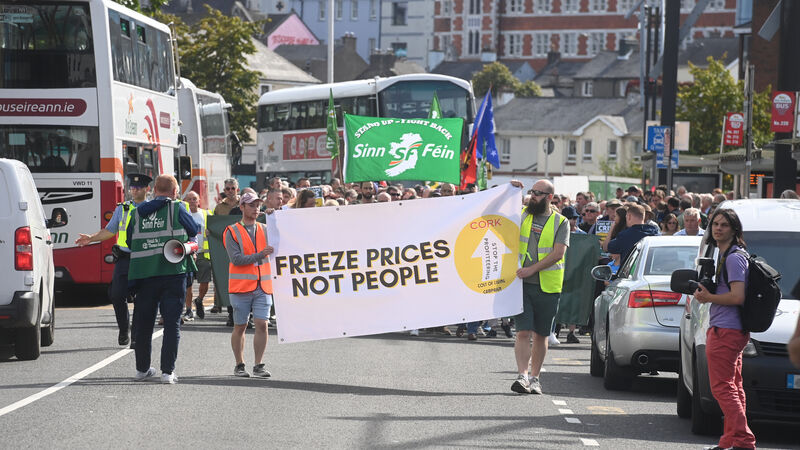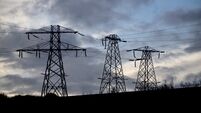Fergus Finlay: Privatisation, Irish style, has robbed us of our most precious assets

A cost of living protest in Cork at the weekend, where up to 2,000 protesters marched through the city.
I’VE always been a marcher. I’ve marched most for disability rights. But I’ve marched for equality rights, gay rights, and women’s reproductive rights too. I’ve marched to celebrate the survivors of abuse, and I’ve marched against abusers and the institutions that protected them. I’ve marched in taxpayers’ protests way back when, and I’ve marched for homeless people and in support of the demand for radical new housing policies. I’ve marched for the rights of children.
I’ve been involved in more or less every referendum campaign, at one level or another, since I was a lad. We’ve had success and failure — in several cases, bitter failure followed by success, proving that nothing ever remains the same. I’ve learned, and I’ve preached, that you should never give up, and you should approach every campaign as if it was the thing that mattered most in the world.
Already a subscriber? Sign in
You have reached your article limit.
Subscribe to access all of the Irish Examiner.
Annual €130 €80
Best value
Monthly €12€6 / month
Introductory offers for new customers. Annual billed once for first year. Renews at €130. Monthly initial discount (first 3 months) billed monthly, then €12 a month. Ts&Cs apply.
CONNECT WITH US TODAY
Be the first to know the latest news and updates















